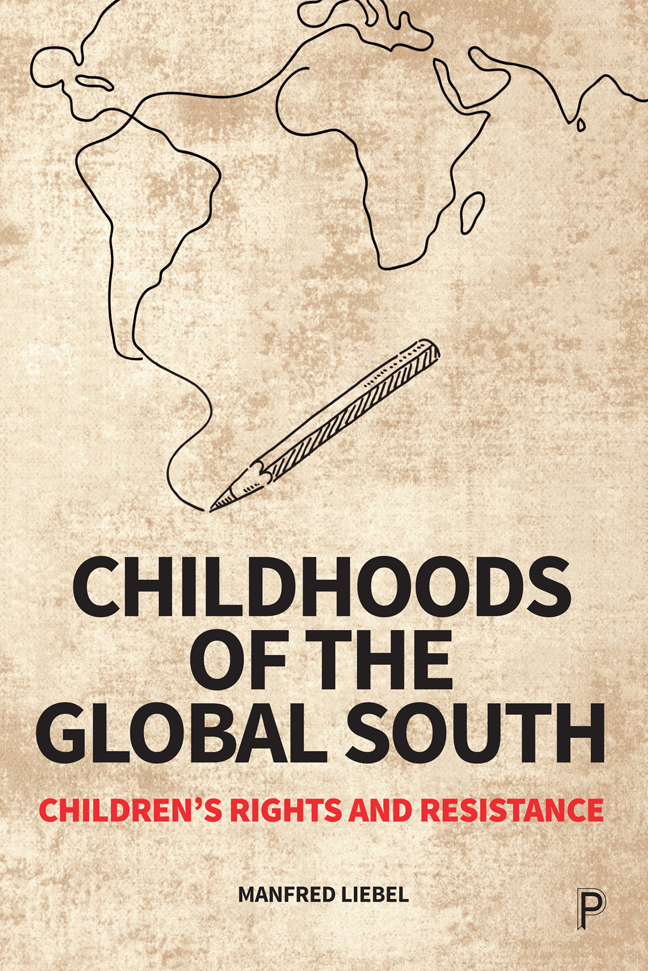9 - ‘Not about us, but with us!’: Perspectives of insurgent research with children of the Global South
Published online by Cambridge University Press: 23 January 2024
Summary
Introduction
Since the turn of the millennium, social childhood studies have not only become more interested in children and childhoods of the Global South, but have also critically reflected on the Eurocentric focus of previous childhood studies (see, for instance, Liebel and Budde, 2017). This critical perspective has been taken up recently in a special issue of the international journal Childhood, claiming to ‘develop perspectives that de-construct northern, dominant scholarships, and facilitate generative thinking on the study of childhood and children using southern epistemologies’ (Abebe et al, 2022: 2; see also Kannan et al, 2022). Part of this (self-)critical view is that until now, a large part of research has been characterized by an approach that uses children of the Global South as a source of knowledge without asking what the knowledge generated means for the children themselves (see Ansell, 2019, and Chapter 4). I will discuss this in detail in this chapter. I want to encourage reflection on forms of knowledge production in childhood and children's rights research that benefit children themselves and contribute to recognizing them as equal human beings and to strengthen their social position in society.
I will focus my reflections on the question of what kind of knowledge is required to reach this aim and how it can be generated. It must be knowledge that reveals children's perceptions and perspectives, that is, how they think, feel and deal with everyday experiences. And it must be knowledge in which not only the marginalization, disregard, oppression, exploitation and violence experienced by children become visible, but also their potential to defend themselves against it. In my opinion, such knowledge, sometimes called ‘situated knowledges’ (Haraway, 1988) or ‘liberatory knowledge’ (Giri, 2013), can only emerge together with the children concerned. It must be legitimized by them and accessible to them. The generation of such knowledge requires ethnographic methodologies that do not separate the researcher from the researched, but see research as a joint project in which there are horizontal and equal relationships between all participants. And it requires methodologies that do not build on cognitive and linguistic premises usually attributed to adults, but give equal weight to mimetic and emotional skills and ways of communicating. Here, I refer primarily to research approaches that have emerged in Latin American and Indigenous contexts and represent what Argentine semiotician Walter Mignolo (2009) has called ‘epistemic disobedience’.
- Type
- Chapter
- Information
- Childhoods of the Global SouthChildren's Rights and Resistance, pp. 181 - 197Publisher: Bristol University PressPrint publication year: 2023

